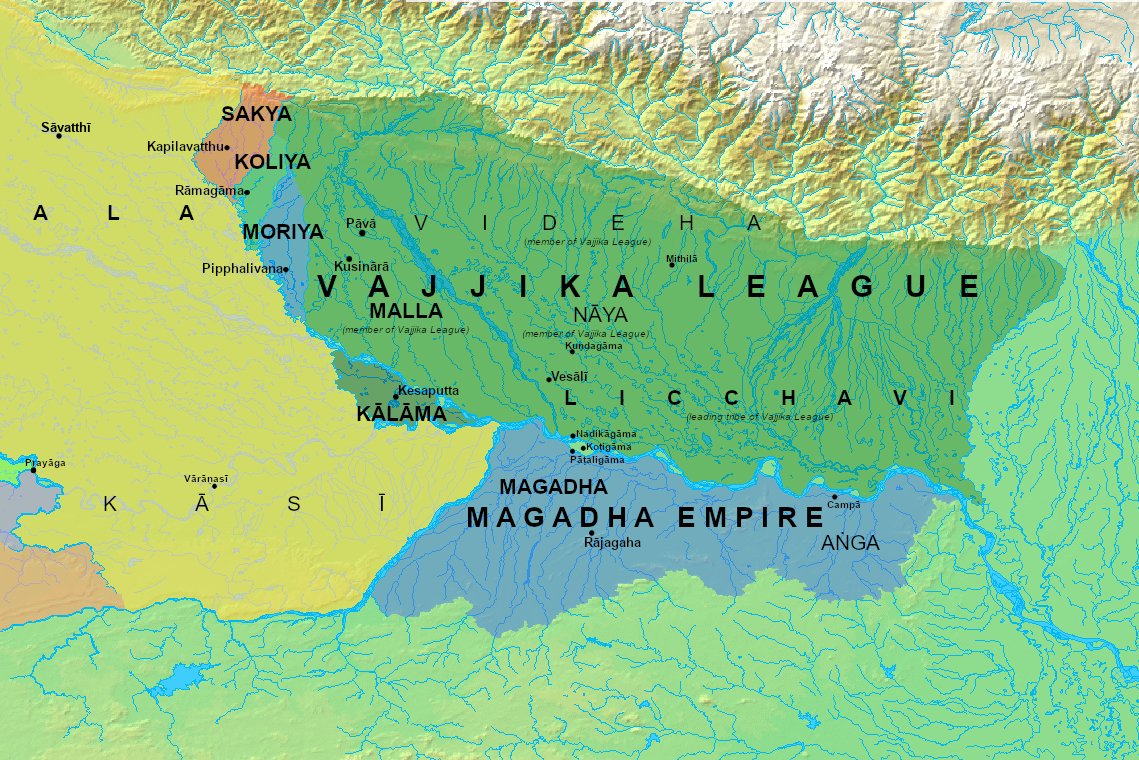Today – the 3rd of May – marks Apramāda’s first birthday. In our first year we’ve published twenty-six articles and ten interviews, on a wide range of topics. Our stated aim is to offer Buddhist perspectives on society and culture, and looking back at our articles, book reviews and interviews, I’m proud of what we’ve achieved, and I know that many people appreciate Apramāda.
We also have our critics of course, which we fully expected; in fact we would have been very surprised if we didn’t. The most serious criticism levelled against us is that we aren’t really bringing Buddhist perspectives to bear on society and culture, but are merely expressing our own cultural and political biases. To my knowledge, no-one has given a satisfactory account of which particular views expressed in Apramāda are not Dharmic in nature. If someone were to do that we would, I’m sure, thank the critic and correct ourselves.
Our teacher, Urgyen Sangharakshita, often gave his perspectives on society and culture, mostly in his seminars and essays, although he did give three lectures specifically on ‘world problems’ at different times. In the first of these, Evolution or Extinction: A Buddhist View of World Problems, which he gave in 1971, he said that some problems are so huge, so serious, and so frightening, that our first reaction might be strongly emotional: indignation, concern, fear, and perhaps outrage against those responsible. However, once that initial reaction has died down another feeling might sweep over us – one of helplessness. After all, world problems are so big, so ‘global’, so complicated, and there are so many of them, whereas I am so small, so weak, that surely there is nothing I can do about any of it. So why worry? I’ll try to forget them and just get on with my own life. To this, he said:
In my opinion, retreating from the problems in a personal and rather narrow sense is not an attitude worthy of a human being, one who’s trying to be a human being in the full sense of the term. It represents a sort of abdication of responsibility.1
Interestingly, he didn’t say that we should all go out and try to change the world through direct action. By ‘a personal and rather narrow sense’ he meant an essentially selfish life, one which turns away from the very real suffering that is evident in the world. Rather, he encouraged his listeners to change the world indirectly by practising the Dharma and creating spiritual communities, which would have a positive influence on the societies in which we live. This was his main message in that lecture, which he expanded on in 1978, in his lecture A Vision of History. The clear implication of this is that living the spiritual life is not a purely personal affair, but has, or can have, an important social impact.
That doesn’t, of course, necessarily preclude more direct action, and Apramāda is our response to at least some of the world’s problems. We do that by speaking the truth, as far as we know it. The Buddha once gave two criteria for his communication: he only spoke the truth, and then only when he thought it would be beneficial to the listener. He went on to say that the truth may be disagreeable and unwelcome to some, but that wouldn’t deter him from speaking, as long as he thought it would be beneficial, at least potentially, or in the long run. We know that some of what we express in Apramāda is ‘disagreeable and unwelcome’ to some readers, but we do our utmost to keep to the truth. Once again, if anyone lets us know that one of our writers has got their facts wrong, we would thank them and amend the article.
The third of Sangharakshita’s three lectures on world problems, given in 1984, was his response to a crisis in the previous year, in which America/NATO and the Soviet Union came perilously close to starting a nuclear war.2In the lecture, Buddhism, World Peace, and Nuclear War, Sangharakshita spoke about the importance of ‘loyalty to the notion of objective truth’. Truth, he said, is truth regardless of our subjective feelings about it, and regardless of the way in which it affects our personal interests. Remarking on the failure of communication that is such a feature of our times (arguably even more so now than then), he said this was due to a breakdown of the notion of objective truth. The first stage in this breakdown occurs when the notion of objective truth becomes selective. ‘Actual lies may not be told, but those facts which are not in accordance with the feelings and interests of this or that individual group are increasingly ignored, mis-represented, distorted, and suppressed’. The next stage occurs when that which is in accordance with those interests becomes the truth. At this stage the notion of objective truth is substituted by the notion of subjective truth. He went on to say that
until the notion of objective truth has been reinstated, all our attempts to communicate are doomed to end in frustration. Therefore the reinstatement of the notion of objective truth is one of our most urgent tasks.3
The notion of objective truth has been seriously undermined in the last few decades, with politicians, leaders and activists regarding it as legitimate to exaggerate or minimize the facts in order to motivate people and governments to act in the way they think they should. There has also been an unfortunate trend to value subjective truth above objective truth, so that if someone feels wronged in any way, that feeling is treated as the truth, even in cases where no-one has actually wronged them. Those of us who produce Apramāda wish to lend our voice to the work of reinstating the notion of objective truth. Of course we are a very small voice in a world in which many people are shouting and screaming. But not to speak would, as Sangharakshita said, be an abdication of our responsibility.
Footnotes
- free buddhist audio : : Evolution Or Extinction – A Buddhist View Of World Problems
- Apparently, Moscow mistakenly believed the U.S. and NATO might be preparing to launch a surprise nuclear attack, while Washington was oblivious to the imminent threat of a preemptive nuclear strike from Moscow, thinking the Russians understood NATO was merely conducting a nuclear training exercise. For more on this, see 1983 Soviet nuclear false alarm incident – Wikipedia
- free buddhist audio : Buddhism, World Peace, And Nuclear War By Sangharakshita



